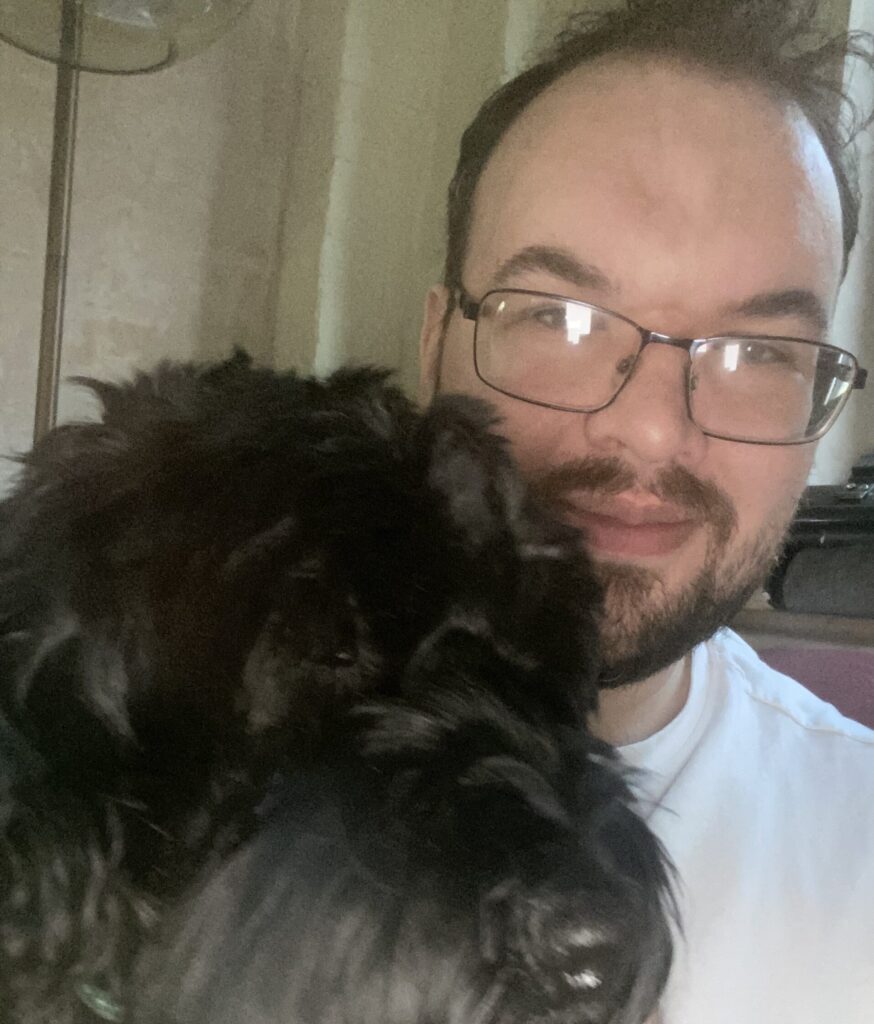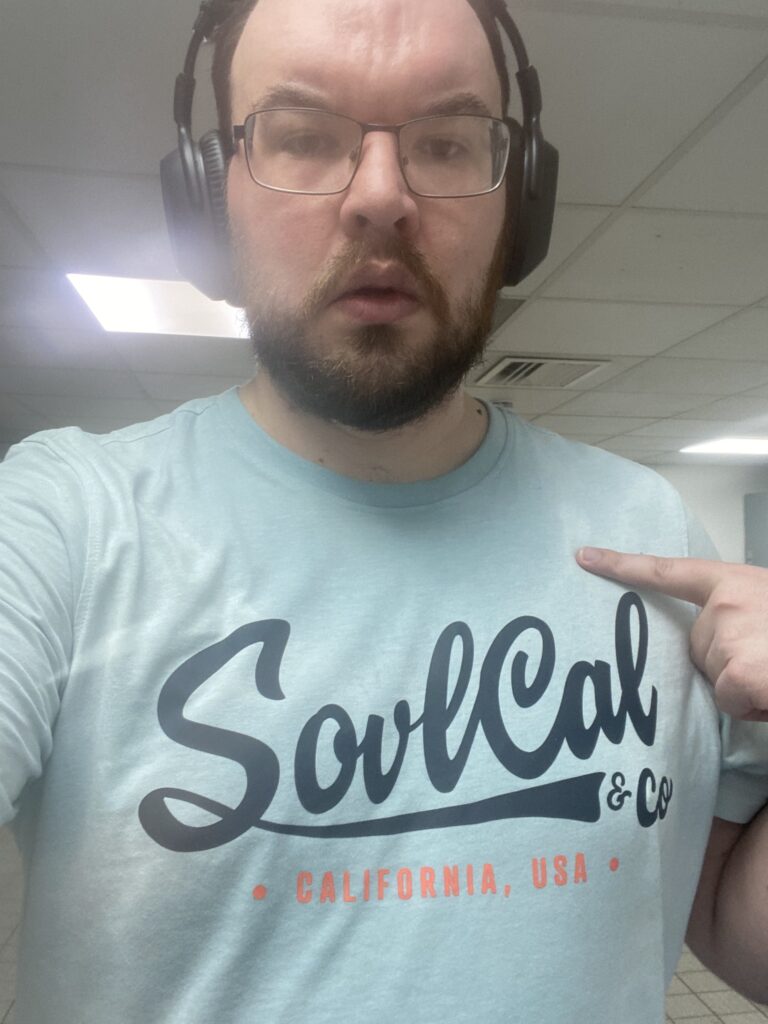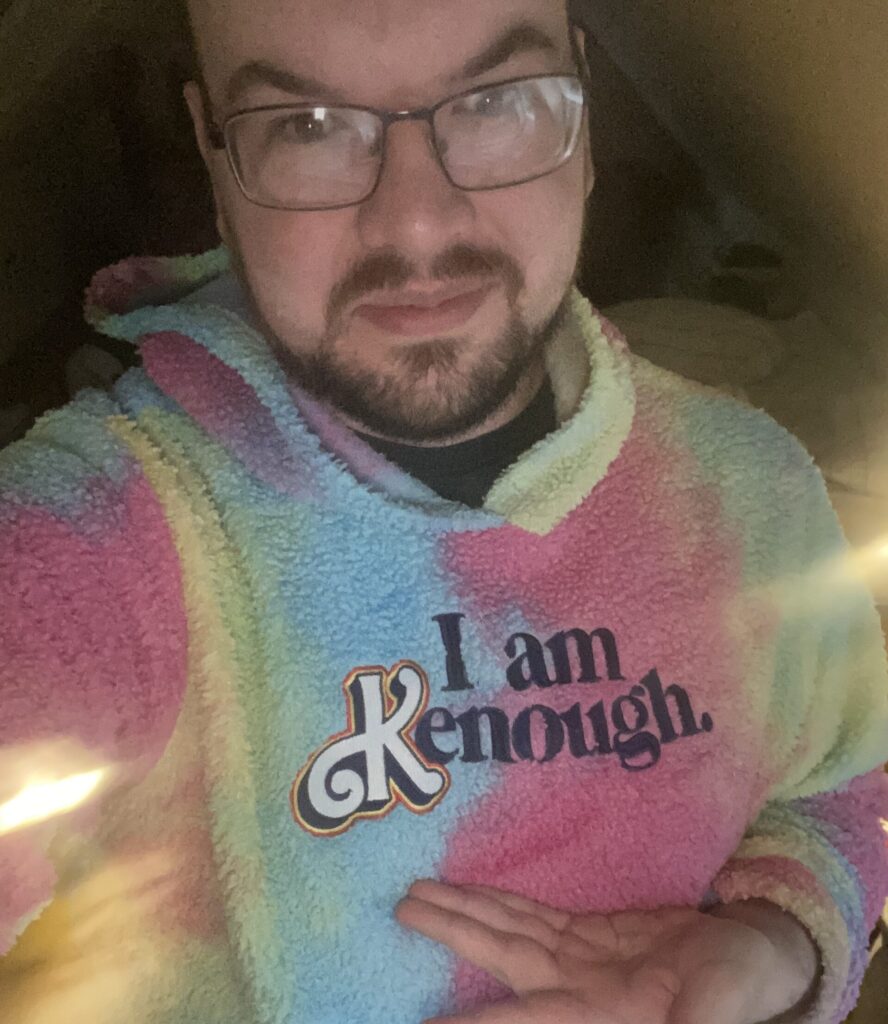May 2, 2025

Hello! I’m Will, I’m a 32-year-old Accountancy Grad about to start a career as a trainee auditor at Audit Scotland. I love games, food and music. I was diagnosed with RRMS in late 2024, and on top of that I’d had quite a few other, I’d probably say traumatic, life events happen across the 12 months prior.
I’ve struggled with social anxiety and depression for most of my adolescent and adult life. Put simply, I was in a really bad way, which probably came to a head last November. I had an episode, it wasn’t great.
My MS nurse (who is basically my superhero) Mhairi, referred me to Revive MS Support, specifically to counselling. It was my first time connecting with Revive. I’ve had therapy before, and I’ve found that for me, it’s most helpful once I’m out of the initial crisis, when I can be open and reflective. By the time I started sessions with Geraldine in January, I’d had time over the holidays to be in a bit more of a rational state of mind. For myself at least, that’s when I’ve found myself to be the most open to actually receiving help!
The first few sessions were just me producing word vomit of all of the things I hadn’t really had a space to articulate in my life for the past 18 months or so, and just having someone there to listen to that was incredible! Especially that kind of effect that happens when you hear yourself say something out loud…it definitely helped me reframe how I’d been doing.
I recently had a friend who was on the fence about receiving counselling, and I think they were under the impression (sadly quite common, especially in circles more sceptical about mental health!) that counsellors or therapists are people paid to be your friend and listen to you. Obviously, that’s not true!
I would say that a counsellor or therapist is there more to inform you about strategies and ways that you can think, reframe and cope with harmful tendencies within your own brain.

An analogy that I gave my friend was that a counsellor is more like a Personal Trainer, but in terms of showing you how to think, rationalise, and view things with a bit more objectivism. If you want to lift a 15kg dumbbell but your form is absolutely terrible, the Personal Trainer’s not there to be your friend, they’re just going to show you how to put your limbs and joints in the right place so you can approach that with the best technique possible. And then with your technique fixed, you will find lifting that weight far easier!
My counsellor, Geraldine, helped me reframe and look at things in a more positive light which was massively beneficial. A lot of what I’ve discovered is that actually, objectively, I’m doing really well at keeping my head above water- and also the notion that those closest to me are probably struggling a lot with my diagnosis, especially considering how invisible a lot of MS is- helped
Counselling has made a difference to my day-to-day life. For one, you feel a lot less compressed, like you’re about to explode if the pressure increases any more, because you have a safe space you can just go vent as much angst, anxiety, vitriol, worry, whatever it may be! And that’s okay! As a fairly solitary guy in his 30s I definitely feel I have a lot less space to do that in my day to day and having that was genuinely incredible.
I think if you’re thinking about it, you probably are in a space that you could benefit from it, but you need to go in with an open mind, be honest, not deflect or make excuses or blow smoke up your own butt for the sake of saving face. Be honest, that means being vulnerable, and the benefit it can have to you can be life-changing.

I can’t recommend counselling enough, frankly. It’s a bit like a cheat code for dealing with life.
People need to be more open about mental health in general! Counselling and therapy is way better if you’re in a place that you’re receptive to the idea.
With regards to MS specifically, it’s horrid, right? That’s okay, and I think talking about that is fine. I spend a reasonable amount of time talking to the newly diagnosed through various social media just because I think of how scared, depressed, anxious, I was at that time and I want to pay that forwards.
MS absolutely sucks, so does being told you have it. It’s okay to not be okay. But also, MS does not define you. It isn’t your personality, even if for the few months after you get diagnosed it might be a bit all-consuming and all you talk about, think and do in your spare time. MS changes lives! But once you get used to it, and get to a point that you can start working on yourself, you can make it the least interesting thing about you.
